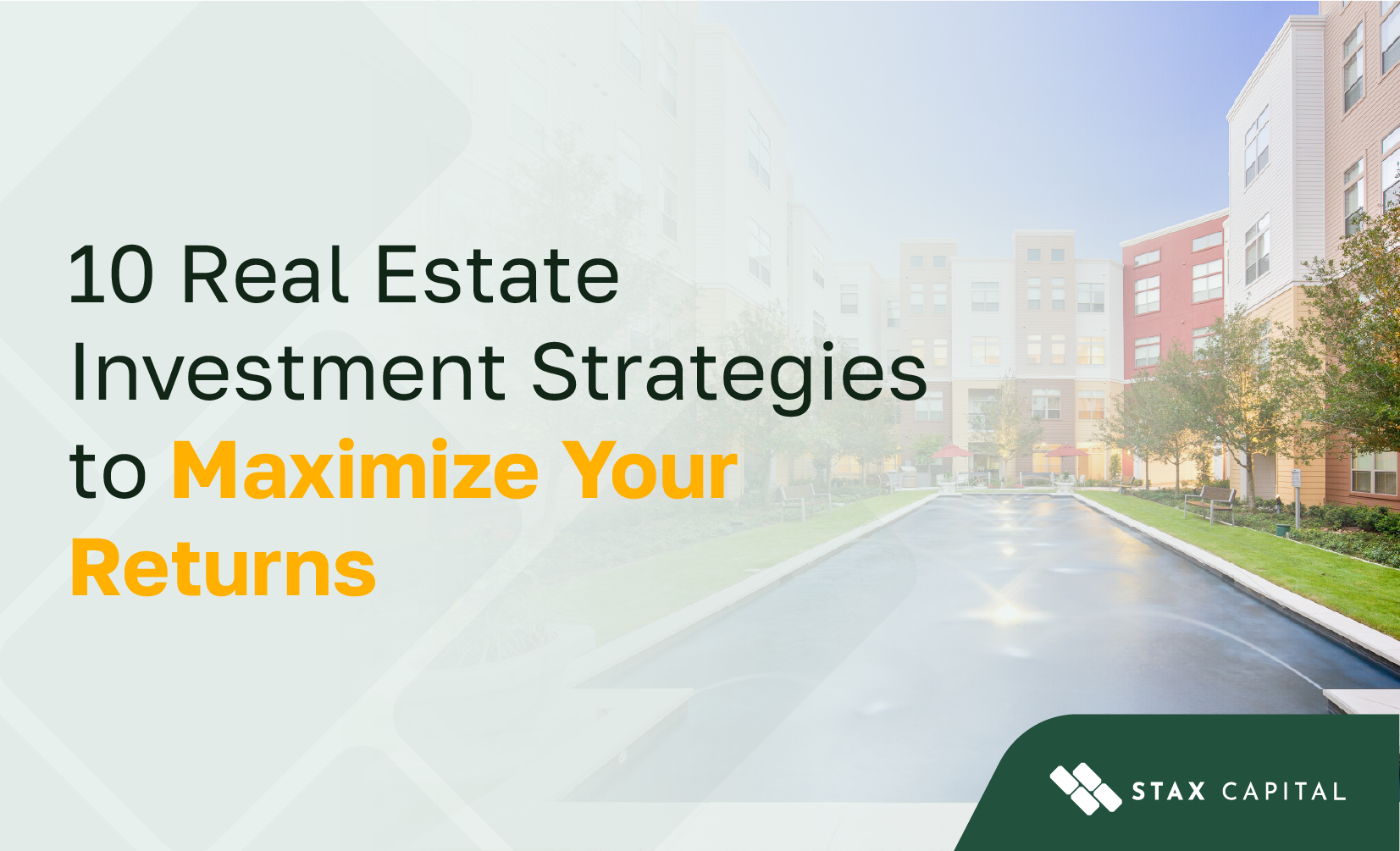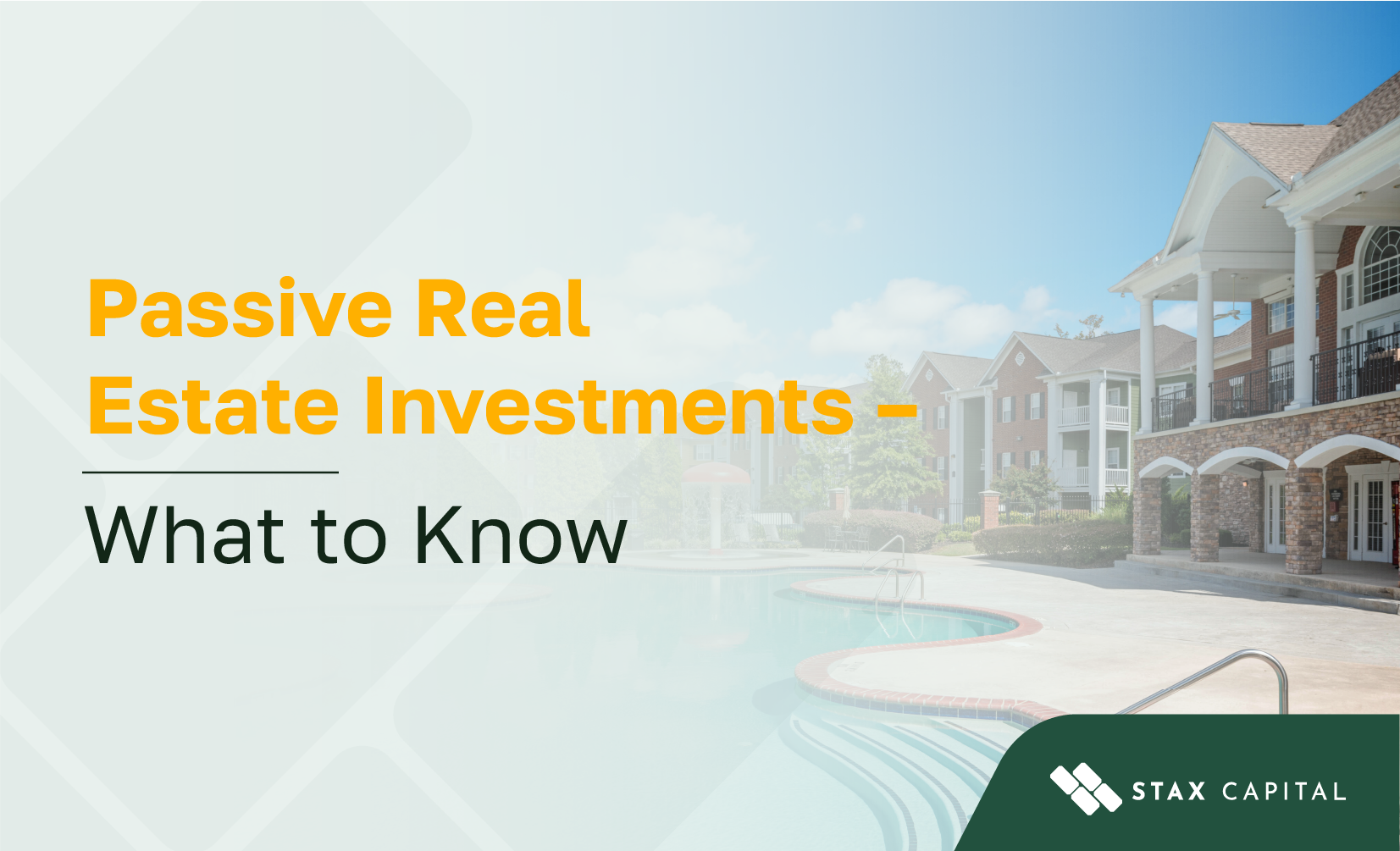Top Benefits of Passive Real Estate Ownership

Exchange Tips
Imagine growing your wealth without dealing with daily property management. Passive real estate ownership lets you invest in real estate without the hassle of tenant issues, repairs, or hands-on tasks. From diversifying your portfolio to accessing tax benefits, this approach allows you to reap financial rewards while experts handle the work.
Let's dive into why this investment approach might be your path to financial freedom.
Why Passive Real Estate Ownership is a Smart Choice?
Investing in real estate doesn’t have to mean being on-call for property emergencies or managing tedious details. Passive ownership lets you benefit from real estate’s financial rewards while leaving the day-to-day responsibilities to professionals.
However, passive investments come with certain risks, including limited control over property decisions and exposure to market fluctuations. Investors should evaluate whether this approach aligns with their individual circumstances.
Now, let’s have a look at the benefits one by one.
Free Up Time and Reduce Stress
One of the greatest benefits of passive real estate ownership is the freedom it offers. When you invest passively, you can leave the day-to-day tasks like tenant management, maintenance, and paperwork to professionals. These tasks, while necessary, can be overwhelming for many investors. By allowing experts to handle them, you free up time to focus on your personal goals, family, and hobbies.
This stress-free approach allows you to build wealth without sacrificing your quality of life. You’re still benefiting financially but without the headaches of active involvement. Whether you're working full-time, retired, or simply want to focus on other projects, passive real estate ownership offers you the flexibility to live life on your own terms.
Note: Always consult with a financial advisor to ensure this investment approach aligns with your financial goals and risk tolerance.
Achieve Diversification in Your Portfolio
Diversifying your investments is a smart way to reduce risk. Passive real estate ownership makes this simple. You can invest in different types of properties—residential, commercial, or industrial. You can also spread your investments across multiple locations.
This variety protects you from being overly dependent on one market or a single property. For instance, if one area faces economic challenges, properties in other places might still do well. Combining property types, like homes and storage facilities, also balances risk since they respond differently to market changes.
Diversification enhances your investment strategy. It helps offset losses in other areas like stocks or bonds. With a mix of properties, you’re more likely to see steady, long-term returns. It’s a strategy that can work to reduce overall risk and a smarter path to growing your wealth.
Note: Diversification does not eliminate all risks. Market conditions and economic trends can still impact investment performance.
Minimize Credit and Liability Risks
Passive real estate ownership helps reduce your exposure to personal credit and liability risks. Unlike active property owners who may need to take out large loans or manage repairs, you can rely on property managers or investment groups.
These professionals handle all operational issues, from maintenance to tenant complaints and repairs. This means you don’t carry the responsibility of keeping your personal assets and credit safe. It offers peace of mind knowing your financial risks are contained, and your focus remains on returns rather than daily property management.
Please note that reliance on property managers or investment groups does not guarantee risk-free outcomes. Perform due diligence before entering agreements.
Develop Multiple Income Streams
One of the most compelling reasons to pursue passive real estate ownership is the ability to create multiple streams of income. By investing in multiple properties, you can generate a more reliable and diverse set of income streams. For example, owning both residential and commercial properties gives you access to income from different market sectors.
Spreading your investments across locations adds another layer of protection. Economic challenges in one region won’t hurt your entire portfolio, as other properties may still earn income. This approach spreads out risk and opens more profit opportunities, helping you establish a solid financial foundation over time.
Note: Income from real estate investments is not guaranteed and depends on market performance and tenant reliability.
Access to Professional Expertise
One of the main draws of passive real estate ownership is the access it gives you to expert guidance. With professionals like property managers, accountants, and legal advisors handling the intricacies of real estate management, you don’t have to worry about the details.
These experts take care of everything, from maintaining the property and managing tenants to ensuring you receive tax documentation in a timely manner Their knowledge helps maximize returns and avoid mistakes. By relying on professionals, you can focus on the bigger picture and long-term growth of your portfolio.
Note: Always verify the credentials and track record of professionals managing your investments.
Gain Tax Advantages
Passive real estate ownership also comes with valuable tax advantages. You can claim deductions for property management fees, maintenance costs, and mortgage interest. Additionally, depreciation also lets you write off part of the property's value over time, lowering your taxable income.
You might also defer capital gains taxes using tools like 1031 exchanges. These allow you to reinvest profits from property sales into new ones without paying taxes immediately. These tax advantages allow you to retain more of your earnings, which can then be reinvested to increase your wealth even further.
Note: Tax benefits depend on individual circumstances and applicable laws. Consult with a tax professional for personalized advice
Benefit from Market Stability
Real estate has long been known as a reliable investment, and with good reason. While stock markets can experience drastic fluctuations, real estate generally offers consistent returns. By owning rental properties, you can earn regular rental income, even during periods of economic downturn.
Unlike other investments that can be heavily impacted by short-term market volatility, real estate provides ongoing cash flow, helping you weather difficult periods. Over time, property values tend to rise, meaning you can benefit from both rental income and long-term appreciation. This makes real estate a smart choice for building wealth with less worry about immediate financial crises.
Note: While real estate may offer consistent returns, past performance does not guarantee future results, and one must be willing to hold real estate investments over long periods of time, which limits liquidity within an investor's portfolio.
Build Long-Term Wealth with Less Volatility
When it comes to building wealth, real estate offers a slower but steadier path compared to other types of investments. By focusing on rental properties, you create a consistent income stream that helps build your financial foundation. While short-term fluctuations can happen, real estate typically rises in value over the long run.
Unlike stocks, which can see massive swings in value, real estate provides a more predictable growth pattern. Even if the market sees temporary dips, your income from rentals and long-term appreciation helps balance things out. This makes it easier to plan for the future, knowing that your wealth is growing steadily, even if there are bumps along the way.
Note: Past performance is not indicative of future results, and market trends may impact returns.
Is Passive Real Estate Ownership Right for You?
Passive real estate ownership offers potential financial benefits but requires careful planning and a clear understanding of risks. By working with qualified professionals, you can navigate this investment strategy more effectively.
Ready to explore your options? Contact us to learn how passive real estate investing can help you achieve your financial goals.



Share: